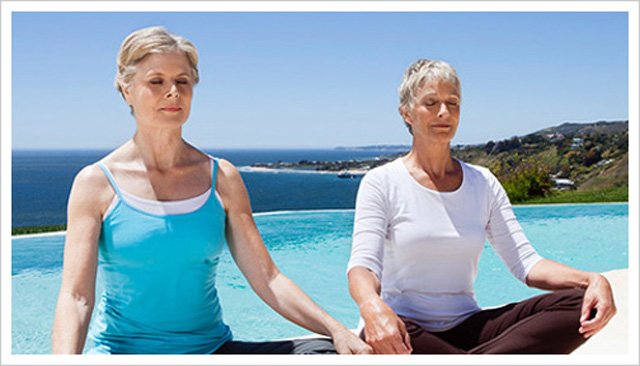Meditation is no longer regarded as some exotic, new age practice where people chant and go into a trance. It is widely accepted in medical circles that meditation has lots of proven, practical advantages and can play a major role in both avoiding many illnesses and in helping to treat some serious ailments. It was interesting to note that many of the medical experts who contributed to our book “How to stay Healthy, Active and Sharp in Retirement” recommended that people adopt the habit of regular meditation. A powerful quote from one of them sums up their general view –“ The most useful, most practical and most effective thing that we can do for our own health, for healing and for our wellbeing is to meditate regularly”.
The big challenge for many people is “How do I start?”. There are lots of books on the subject and Dr. Google can also provide lots of information. There are also local people and organisations in most towns and cities who run meditation classes. I would suggest that to get started properly, you probably need some assistance from a person who knows a bit about meditating.
The following steps are from Ian Gawler’s article in our book on staying healthy that I mentioned earlier –
(1) Preparation This involves selecting a quiet, peaceful location, sitting in an upright position, either on a chair or cushion and adopting a relaxed accepting attitude.
(2) Relaxation. We need to be physically and mentally relaxed to meditate successfully. There are various relaxation techniques which can be used. Just focussing on our breathing is one of them.
(3) Mindfulness. As the body relaxes and the mind slows down, we focus on what we are doing, our breathing. If thoughts come into our mind, we notice them but avoid making judgements and allow the thoughts to go without following them.
(4) Stillness. As we get deeper into our meditation and more focussed on what we are doing at this moment, our body slows down and our mind settles and we start to experience a feeling of stillness. This is the feeling that we try to achieve when meditating.
The entire experience is very pleasant and calming. It does require some practice to become familiar with the techniques for calming our busy minds, but it’s well worth the effort.
Ian Gawler’s detailed instructions on how to meditate are in our book “How to be Healthy, Active and Sharp in Retirement’ available on this web site.

Over 50s Health – Meditation can help
Posted in Articles.
